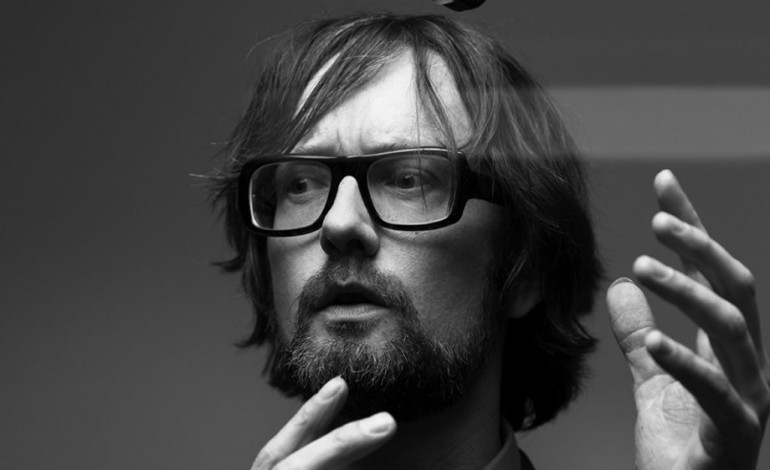
This morning Luke Turner, writing in The Guardian, today released an open letter, signed by former Pulp frontman and indie icon Jarvis Cocker and over 500 members of music royalty, protesting against proposed changes to BBC Radio 3 schedule and content. This follows an announcement yesterday that the station would be making adjustments to it’s programming.
Over the past few days @juderogers @miracalix @joemuggs & myself have collected signatures for an open letter to @BBCRadio3 protesting their cuts. Over 500 signed up, and it’s a flippin bonkers list, published now at the @guardian https://t.co/UviodFzQFZ
— Luke Turner (@LukeTurnerEsq) March 19, 2019
Joining Jarvis on the list include musicians Brian Eno and Billy Bragg, Hot Chip’s Alexis Taylor, a selection of members of Radiohead and a host of academics and music personalities. The full list can be viewed here. The group argue that the changes “Threaten the musical ecosystem” by removing the spaces for experimental music which is not otherwise represented on commercial radio.
The controversy features around the BBC’s decision to cut “The Late Junction” down from three shows a week to one. The BBC initially justified this decision as allowing the station “to make sure we continue to offer a rich mix of music and culture to existing and future audiences” Turner however argues that this goal is the very purpose of “The Late Junction” and that an £800 million budget cut imposed by the governments may be a motivation factor behind the changes.As one of the station’s most popular shows, the decision has been met with real confusion and anger.
BBC reducing #LateJunction to 1 prog a week? Try this. Open BBC Radio iPlayer, toggle Radio 3 and select ‘Most popular’. Now go to BBC Sounds & select ‘Classical’. See LJ in the top 3? Me too. It’s hugely loved & reaches a diverse range of people. Don’t mess with the best.
— David Peate (@david_peate) March 16, 2019
The proposed changes to BBC Radio 3 draws parallels with the proposed cancellations of 6 music, back in 2010. The BBC had originally planned to close the station, due to budget cuts, but the station was saved as a result of pressure from listeners and musicians, and ironically the station went on to employ Jarvis Cocker to present ‘The Sunday Service”. The BBC is yet to release a statement in response to the open letter, so the fate of “The Late Junction” remains up in the air for now.
The Full Letter Can Be Read Below:
To:
Alan Davey, Controller, BBC Radio 3
Edward Blakeman, commissioning and programme editor, BBC Radio 3
James Purnell, BBC Director of Radio
We are 559 music-lovers, musicians, artists, curators, record label owners, venue owners, festival programmers and critics writing to protest the dramatic cuts to Radio 3’s programming of specialist music. These have been made, in the words of Alan Davey in his blog about the Autumn scheduling plans, to “enhance the distinctive nature of the network”. The opposite is happening: the truly distinctive parts of the network are being dismantled.
British jazz is experiencing a renaissance. Thrilling folk acts are attracting broader audiences. Electronic and experimental music is thriving, and boundaries between genres, mediums and scenes are being dissolved and swirled into ever more exciting permutations. But in the month of its sold-out festival in London, the brilliant Late Junction, which supports new and existing artists from the worlds of experimental music, folk, jazz and beyond, is being reduced from three shows a week to one. Jazz Now and Geoffrey Smith’s Jazz are being ‘rested’. Music Planet, Radio 3’s only dedicated programme exploring music from around the world, is being moved to a post-midnight slot, and having its running time cut by half. The cuts are obvious. And while we welcome the adventurous and unique format of Unclassified, it only has an hour in the schedules. It is not enough.
The remit of BBC Radio 3 is explicit: to appeal to listeners of any age seeking to expand their cultural horizons through engagement with the world of music and the arts. The disappearance of the programmes above – fertile, adventurous spaces showcasing the creativity and diversity of many genres – goes against the remit entirely.
Our culture benefits so much from these programmes. Music-lovers tune to make new discoveries and build new creative communities. Music-makers rely on these shows as lifelines to support and share their music with enthusiastic audiences, both nationally and internationally. New works and unexpected collaborations have happened either directly or indirectly due to these shows. This flourishing cultural ecosystem will be damaged, and musicians’ careers profoundly affected, as opportunities for their work to be experienced by the mainstream at home and abroad will be drastically reduced.
We urge Radio 3 to think again about how the changes they are making will profoundly affect the broader cultural landscape. The BBC’s enduring principles – to inform, educate, and entertain – live and breathe in the shows they are pulling apart
